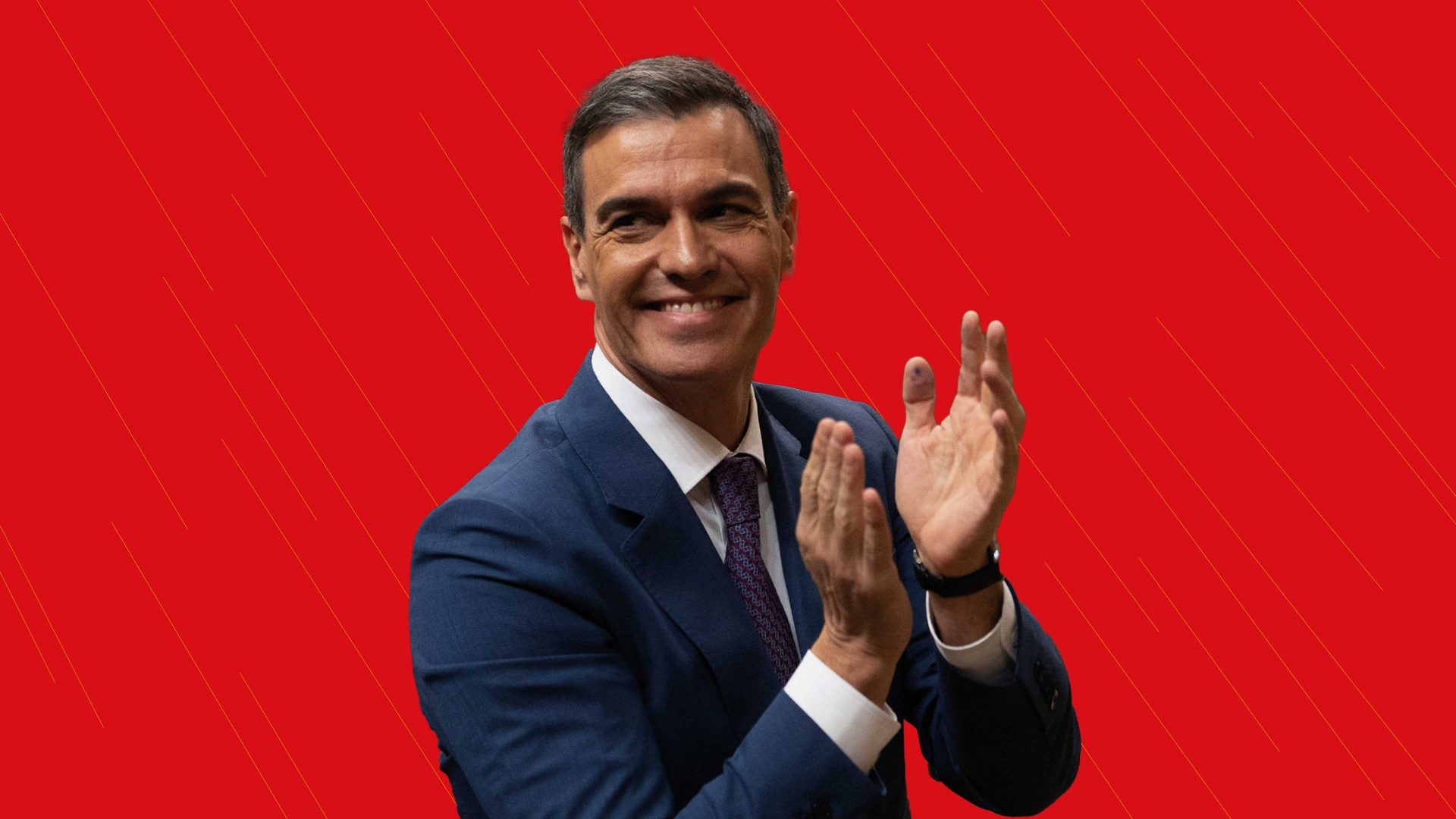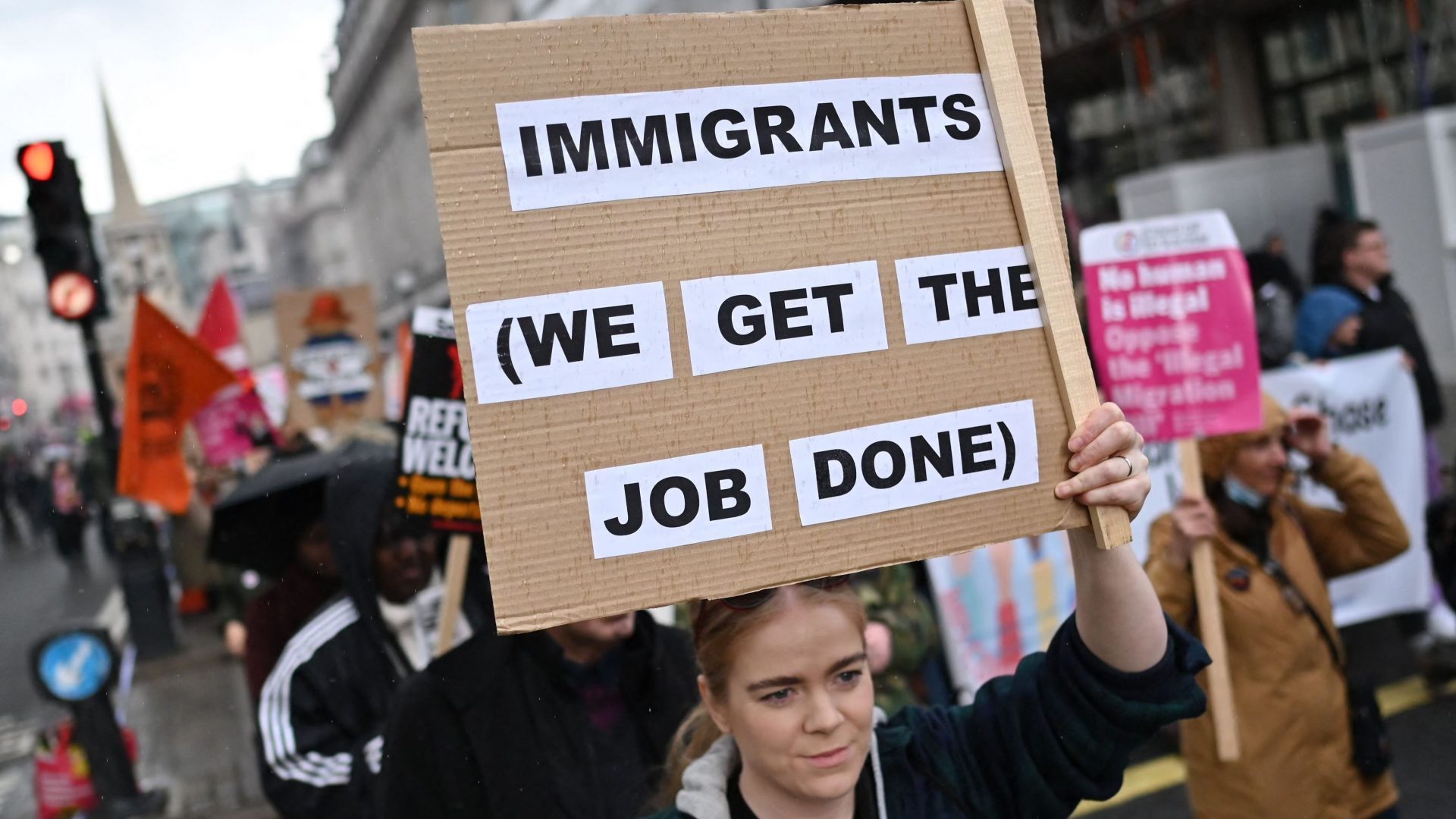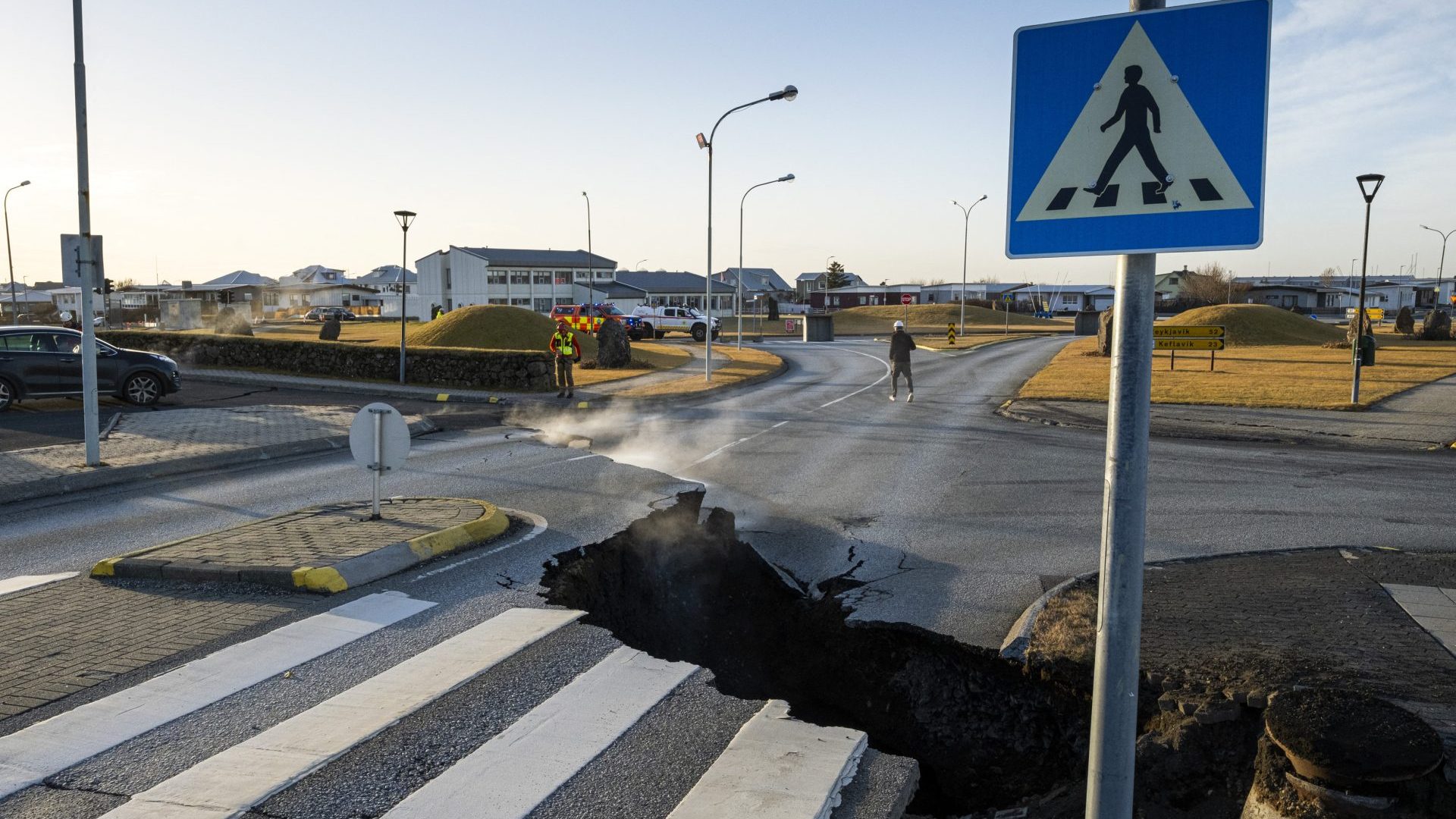The far right brought violence to the streets, its MPs marched out of parliament, and even Tucker Carlson turned up to cheer on the insurrection. But like Eric Morecambe at his piano, Spain’s fascists were playing “the right notes, but in the wrong order”.
Instead of a repeat of Donald Trump’s January 6 uprising, they saw one of Europe’s most successful centre-left governments reinstalled to power. Now the lessons of Spain’s democratic survival story must be learned by all.
The background to last week’s drama was Spain’s snap general election, held in July 2023 by the prime minister, Pedro Sánchez, after a disastrous local election in which the far-right Vox Party and the increasingly Trumpist conservative Partido Popular (PP) surged.
But against all odds Sánchez’s party, the Spanish Socialist Workers Party (PSOE), held its ground. The PP advanced, but mainly at the expense of the far right. Meanwhile the radical left, led by the charismatic labour minister, Yolanda Díaz, reinvented itself, sidelining the ultra-left Podemos party to emerge as a slickly branded entity called Sumar (Unite).
When the votes were tallied, PSOE plus Sumar had enough Congress deputies to form a government if they could gain the support of two Catalan nationalist parties – many of whose leading supporters had been jailed, fined or exiled after leading an unofficial independence referendum in Catalonia in October 2017.
The coalition agreement centred on an increase of the minimum wage, a reduction in the working week and more parental leave – on top of the price controls and other progressive measures Sánchez and Díaz had implemented in the previous administration. But to gain support from the Catalan parties, Sánchez offered to pass an amnesty law, cancelling the convictions of more than 400 Catalan nationalists, not just politicians but headteachers, police officers and civil servants. And this triggered mayhem.
For 10 days in early November, far-right groups surrounded the PSOE party HQs in Madrid and six other cities. They were spurred on by calls from the former conservative PM, José María Aznar, who called Sánchez “a danger to Spain”. Meanwhile, Spain’s notoriously politicised conservative judiciary actually issued terrorism charges against two Catalan mainstream politicians, while Vox urged the police to defy orders to restrain the fascist protesters.
As the attacks rose to a crescendo, Sánchez calmly toured his party HQ and tweeted: “They tried to silence us in the past. Neither then nor now will they be able to intimidate a party with 144 years of history. Cheer up, comrades. The democrats are more numerous.”
With the right wing elite now getting cold feet about the presence of fascists with firebombs on the streets of Madrid, Sánchez survived, delivering a string of jokes and put-downs against the far right at his investiture speech, and making a pledge to recognise the state of Palestine as his first announcement.
What can the rest of the global centre-left learn from these events, highly coloured by the specifics of Spain though they are? What are the takeaways, in particular, for a Joe Biden presidency floundering under the pressure of Trump’s popularity?
First, personality matters. Sánchez is a youngish, modern politician in every sense – emotionally and politically intelligent, and able to use social media to communicate across an increasingly fractured electorate. That won him no friends among the religious and fascist right, but made it easier to command loyalty from within the Spanish state when it mattered. Díaz, meanwhile, rescued the radical left single-handedly, by putting her personal brand at the centre of its reinvention.
Second, a democratic resilience strategy matters. The threat to Spanish democracy comes from right wing organisations within the judiciary, police unions and the unpunished and un-dissolved Francoist networks within the state. Sánchez did not go into the election simply hoping the state would remain impartial: he made the existence of right wing “lawfare” an issue and placed the survival of democracy on the ballot paper.
Third, delivering social justice is paramount. Biden will go into next year’s presidential election vaunting his record on economic growth and infrastructure investment. Sánchez and Díaz, by contrast, fought the election with a track record of delivering better public services, price controls and laws protecting women against sexual violence.
Fourth, managing the energies of the left can be key to victory. If Díaz had not sidelined Podemos and invented Sumar, the left’s portion of the vote would never have been enough to facilitate the new coalition.
Díaz has intelligently negotiated the rise of a populist, networked far left to bring a broad coalition of figures from the 2011 protest movement into an electorally focused politics. For much of the centre left, from Biden to Keir Starmer to Olaf Scholz, learning how to collaborate with a loyal but critical left-of-mainstream seems to be a lost art: but not for Sánchez.
The PSOE-led government will face major challenges, just as a second-term Biden presidency will. So will a Starmer government besieged by a mixture of Nigel Farage and Suella Braverman populism. Spain’s new government shows how such challenges can be overcome – with strategy, political intelligence and charismatic leadership. No wonder Sánchez was the star of the European Socialist summit in Málaga: for now he is the embodiment of success.




